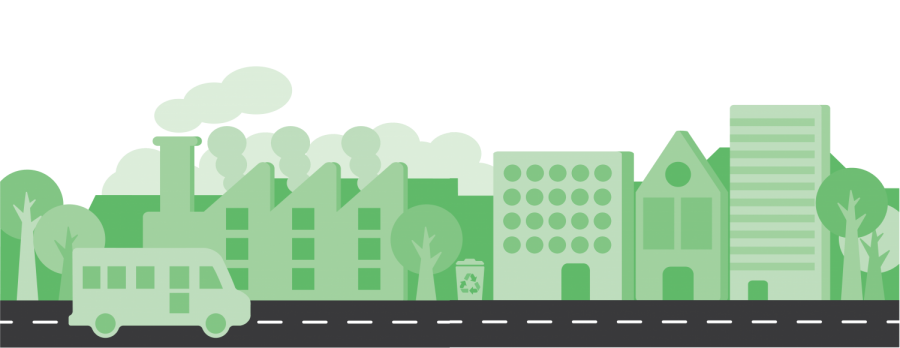CHS Students and Staff Advocate for Change
Blot graphic by Julia Perconti and Adriana Poznanski
According to USA Today, the United States currently ranks third in the world in waste per capita, producing 230 million tons of waste per year with less than a quarter being recycled.
November 15, 2019
With the effects of global warming growing more potent, the world has been scrambling for solutions. Communications High School has a few of their own.
Teachers have found ways to help protect the environment, including radio teacher Bill Bengle.
“We used to print the news for the morning news announcements, and we moved to using Google Chromebooks, so we waste a heck of a lot less paper,” Bengle said.
Teachers have switched to posting and accepting assignments online, instead of printing assignments to conserve paper, similar to Bengle.
Principal James Gleason believes that CHS has done everything possible to be environmentally conscious.
“We have our recycling cans and stuff like that, but I don’t think there’s a larger initiative like solar panels or something like that we could potentially do,” Gleason said.
Solar panels are inescapable in the discussion especially for CHS as a technology based school. With the switch to solar panels, energy would come from harmless sunlight instead of fossil fuels.
Sophomore Jacob Irwin of Middletown supports using alternative sources for energy.
“Try to get reusable energy sources, install a couple solar panels on the roof to help out,” Irwin said. “Honestly that’s all we can do right now that isn’t a big drastic change.”
But some believe that these efforts to help fight against climate change are not enough.
Sophomore Wyatt Lux commented on issues surrounding the cafeteria going directly against the daunting and demanding task of environmental awareness.
“We have styrofoam trays, and plastic utensils, and more trash cans than recycling bins,” said Lux.
Senior and SGA Vice President Dane Tedder of Ocean commented on CHS’ environmental awareness, emphasizing that, amidst changes made, there is still more to be done.
“On the whole, I don’t think Communications, as a school, is doing as much as it can that’s above average to fix environmental problems,” Tedder said. “As a member of the SGA, we’re trying to set plans in motion to see if there’s anything that we can do.”




